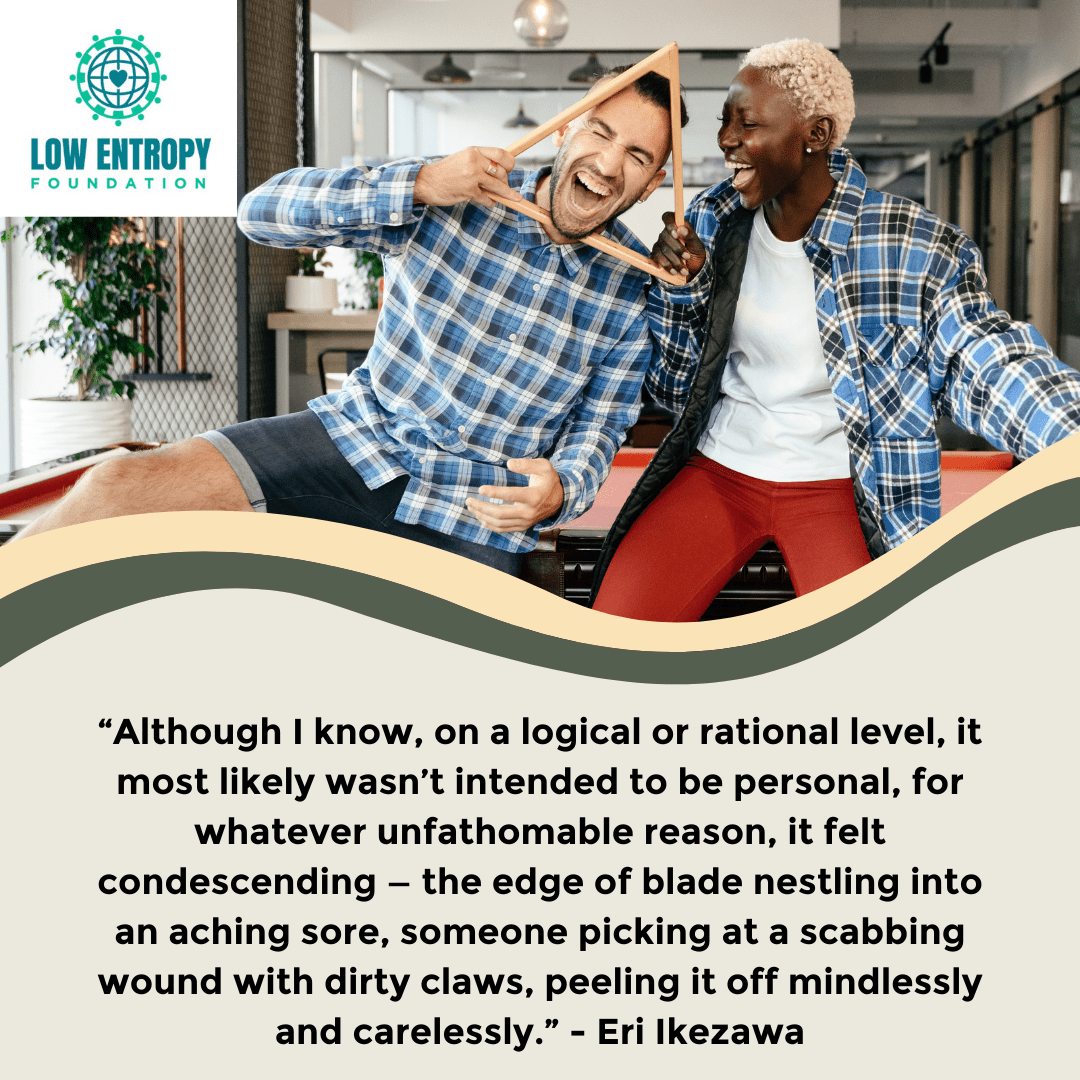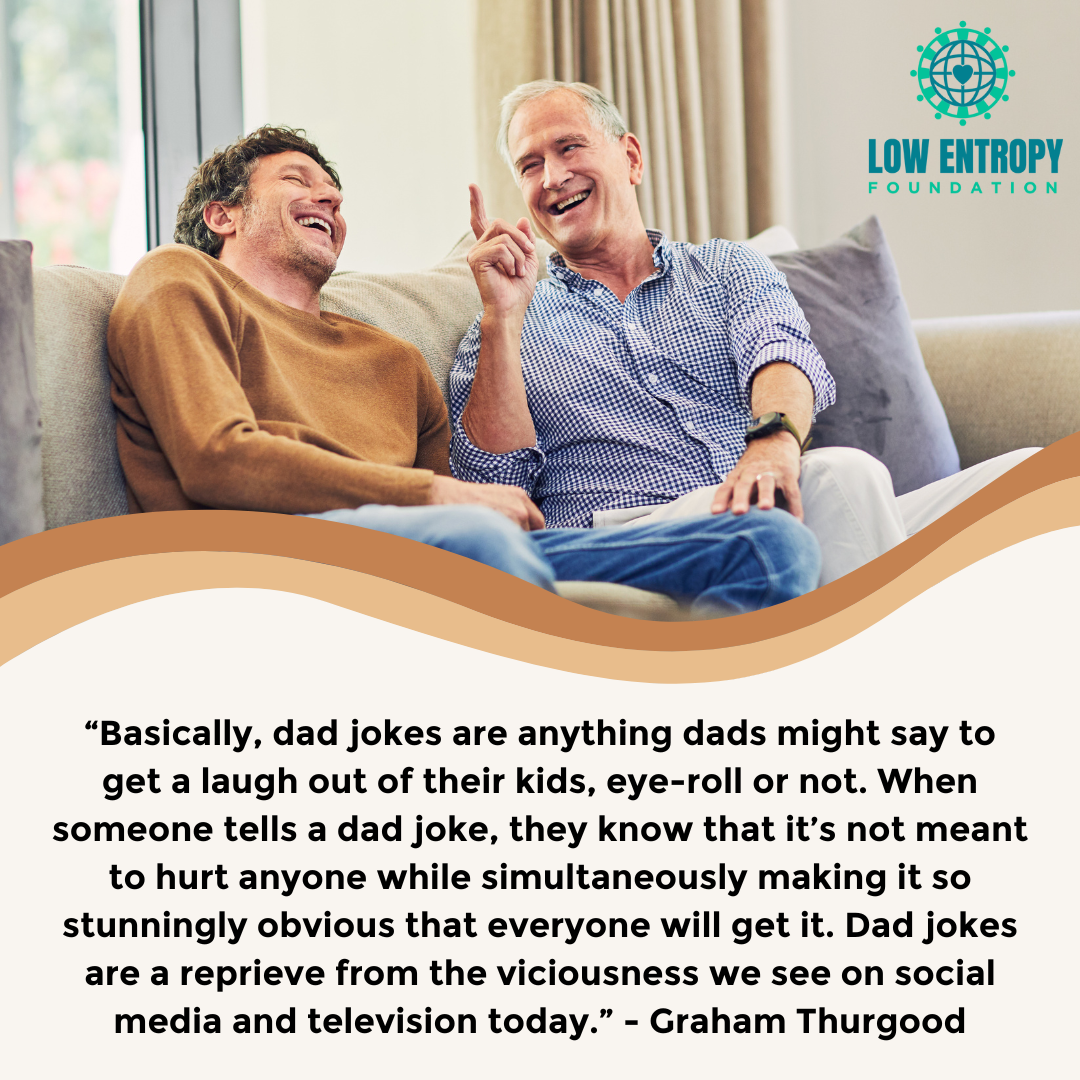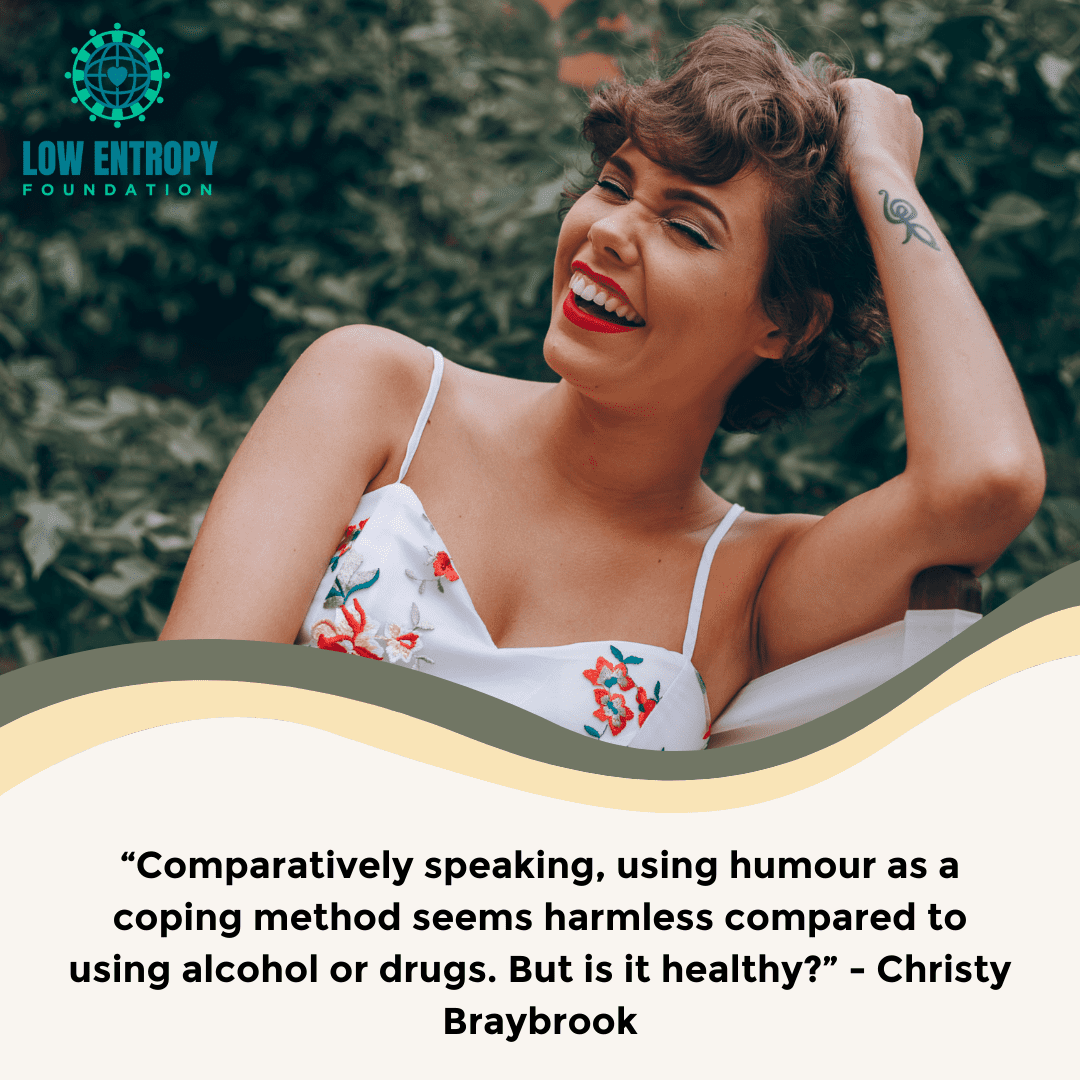Too Far Gone
July 13, 2022

Eri Ikezawa (she/her/hers), Low Entropy Volunteer Writer
The sociopolitical landscape has changed rapidly in the past few decades, and it has impacted several different avenues of life as people used to know it. Representation in commercials and beauty standards is more prominent, microaggressions against people of color have become more easily recognized. Voices of dissent have gotten louder, reproachful of gender inequalities and sexist remarks, allowing women and other gender identities more freedom to express themselves. With this focus on social revolution, even the topography of humour has changed.
Now, when people make jokes, they have begun to challenge and question, “What is going too far?” when making fun of someone.
I think, first and foremost, it is important to understand people’s individual boundaries. Just as we have our own distinctive fingerprints and snowflakes arrange themselves into unique configurations, we are not one and the same. One person’s boundaries do not broadly reflect the collective — or, alternatively, the collective may not always reflect the opinions of a single individual.
Secondly, we must recognize that we do not ultimately get to decide what someone else’s boundaries are — even if it is truly something you cannot see eye-to-eye on, you must respect and validate their feelings. We don’t have to understand why as long as, when push comes to shove, we respect the other person’s boundaries. The fact of the matter is no one person’s experiences will identically replicate the experiences of someone else.
For instance, some people may not mind making (or having people make) dark jokes about their convoluted family history, while others may feel distress at the mere mention of the characters involved in their traumatic past. There is no simple way to explain why one person might be more openly tolerant of grim humour while another might be hurt by it, but it inevitably comes down to a myriad of complex reasons internal to each individual.
Thirdly, when we project our own personal boundaries and views on other people, there is the possibility of misjudging to the point where you appear as though you lack empathy: If it doesn’t bother me, why should it bother you? Just as how genetic expressions can occasionally produce a child with many of the recessive genes visibly intact, it does not mean that one deviation or outlier reflects the majority population.
Therefore, we cannot ascertain someone else’s triggers and sore spots without knowing that person and understanding why they upset them. It is unfair to invalidate someone’s feelings simply because it’s not an experience we can personally empathize with.
While all these factors are relevant and important to consider in the modern landscape of acceptable humour and knowing when and how it is okay to make fun of someone, there are other significant variables at play. For example, how included are you in one’s social ingroup, whether it be race, gender or sexuality? Or how intimate is your relationship to another person?
There is an interesting phenomenon in which people who are part of the same ingroup are more likely to be able to make collectively self-deprecating jokes in good fun, whereas the same jokes would not be appreciated by those who are considered to be from an “outgroup.” There is a conspicuous difference between using those jokes as a bonding mechanism of shared experiences with the members of the said ingroup, whereas it might feel disparaging or condescending from someone who has little to no personal experience with the subject matter at hand.
For example, making jokes about the strict regulations I had as a child due to my Asian parentage is a common stereotype about our cultural heritage that my fellow ingroup members and I would often joke about lightly — and still continue to do to this day. It is a bonding experience, like two otters holding hands down the turbulent stream of human ordeals, latching onto companions who share common ground with us. But I cannot deny the defensiveness I felt, often accompanied by the aching sting left by the barbed quip of an outsider perspective on the same topic.
They don’t get it, they don’t understand, so why is it so easy for them to make a joke about my childhood? Although I know, on a logical or rational level, it most likely wasn’t intended to be personal, for whatever unfathomable reason, it felt condescending — the edge of blade nestling into an aching sore, someone picking at a scabbing wound with dirty claws, peeling it off mindlessly and carelessly.
I also think boundaries depend on the intimacy or lack thereof between two people — an inside or “dark” joke might be funny between childhood friends who have grown up together, but may be incredibly offensive coming from a stranger.
Although I can’t personally relate too much to this, I have seen how my friends have been comfortable with snide remarks from people with whom they feel close kinship, whilst taking offense to people for whom they don’t have the same intimate regard. While the intentions of a joke can be deciphered easily enough by people whom you know well, the innocuousness of a wisecrack from a stranger can be lost in the sense of, Who are you to make that joke about me?
Having learned from my own experiences and opinions, I avoid jokes about people’s appearances (unless it can be modified in a minute, such as food in someone’s teeth, a flyaway hair, etc . . .), cultures, families or any other topics that may be sensitive — especially when I feel less closely intertwined with that person.
Ultimately, the flexibility and terrain of anyone’s boundaries are dependent on each individual person’s encoded tolerance for what is labelled as acceptable or unacceptable to them. We have no right to undermine anyone else’s feelings on the matter. It is always better, in my opinion, to err on the side of caution when first meeting people and gauging their thresholds and sensitivities.
—
My name is Eri Ikezawa and I have an extended minor in psychology and a major in linguistics. I’m still on the path to quelling questions about myself and the direction I want to head in, but in the meantime, I have always wanted to find a way to help others and contribute to a community dedicated to personal development and self-love.
GET INVOLVED
At Low Entropy, we believe changing the world starts with changing ourselves.
Founded in 2015, Low Entropy Facilitates conversations that encourage diversity and promote inclusivity.
We understand that life can be confusing at times. It can seem challenging and sometimes you may feel like no one really “gets you.” We offer an opportunity to connect with others who have the capacity to understand you.









